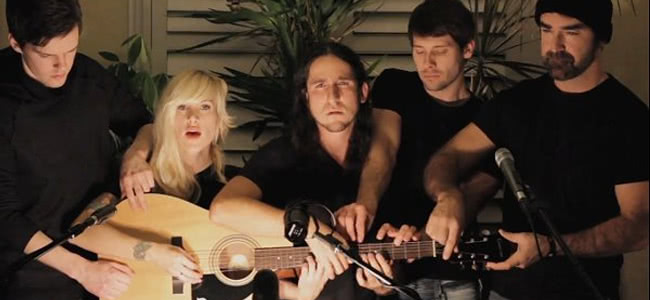If it seems like a third of YouTube is occupied by cover versions of popular songs, a new lawsuit against one of the largest suppliers of video content to the site may see their numbers greatly diminished in a case that could have some intriguing consequences for music publishers and rightsholders.
Cover songs and music videos on YouTube have been targeted in a new lawsuit from a group of music publishers against Fullscreen, a company that focuses on the production and promotion of YouTube content, stating that it is violating artist rights and infringing on copyright with its online videos.
The National Music Publishers Association (NMPA) has slammed Fullscreen with a copyright infringement suit that claims the company is profiting from advertising revenue generated by uploaded music videos and filmed cover versions without sharing compensation to the songwriters, music publishers, or rightsholders, as the NY Times reports.
The NMPA, which represents Warner Music Group’s enormous Chappel Music publishing arm as well as independents like Peermusic and Songs Music Publishing, accuses Fullscreen of using hundreds of songs without proper licensing in music videos and especially cover versions of popular hits, naming the likes of Kanye West, Lady Gaga, and Britney Spears in its submissions. Publishers and songwriters want the royalties earned from ad revenue from – for example – those bedroom-quality tributes to Gotye…
The NMPA is suing on the copyright basis of music and lyrics underlying the cover versions rather than a breach of copyright over the actual use of recordings, which means that publishers and songwriters want the royalties earned from ad revenue from – for example – those bedroom-quality tributes to Gotye (such as Walk The Earth’s 150+ million viewed ‘5 people 1 guitar’ cover) as much as the unlicensed use of ‘Somebody That I Used To Know’ in ‘hilarious’ parody montages.
Fullscreen, which represents 15,000 channels with makes for a combined 200 million subscribers and nearly 2.5 billion monthly views, is one of YouTube’s largest multichannel networks, but as TechWorld points out, music publishers are dissatisfied with the company’s growing popularity off the back of songwriters and musicians, using the new lawsuit as a way of attacking what they see as an online form of music piracy.
The lawsuit, filed this week at the United States District Court in Manhattan, says that the company, and Fullscreen founder George Strompolos, “have wilfully ignored their obligation to obtain licenses and pay royalties to exploit the vast majority of the musical content disseminated over Fullscreen’s networks.”
If NMPA is successful in court it could have some major implications for the policing and licensing of videos on YouTube, perhaps meaning that if users want to record and upload a cover version, they’ll have to ensure they get licensing from publishers and give proper royalty compensation to artists. While YouTube is responsible for the licensing and royalties for content uploaded to its service, it typically delegates that sticky business to multi channel networks managing such content, like Fullscreen. “I don’t recall a similar case involving a major YouTube channel or implicating lots of cover song videos in one case.”
It’s not the first time that YouTube, and its owners Google, has been embroiled in a legal stoush over music licensing issues, the most high-profile being Viacom’s $1 billion copyright lawsuit against the site, but as Eric Goldman of the Santa Clara University School of Law tells TechWorld: “This case seems more comprehensive and ambitious than the prior lawsuits. I don’t recall a similar case involving a major YouTube channel or implicating lots of cover song videos in one case,” he says.
The ruling of the Viacom case found that YouTube wasn’t liable to police every single piece of unauthorised music content on the video streaming site under provisions of “safe harbour” in the Digital Millennium Copyright Act. The NMPA and music publishers’ lawsuit against Fullscreen shows that they’re trying another tact in securing royalties from unauthorised music use – including cover versions – rather than attacking the larger, Google-backed umbrella of YouTube.
Its another sign of YouTube’s ever-growing expansion, helping its owners Google generate $50 billion in revenue from streaming around 6 billion hours of video each month, meaning there’s plenty that have noticed it as veritably untapped gold mine for music makers.
Such as the new YouTube record label, forged as a partnership between Universl and Def Jam’s former boss, looking to make use of the video streaming site “to identify, develop and nurture music’s next generation of superstar talent.”
Independent musicians are also ahead of the curve and making very tidy careers from the video streaming website. Including the first indie artist to surpass 1 billion YouTube views – the cottage industry of Gummibär – and the story of how a composer makes $30K a month thanks to acid-jazz, a New York based online startup, and licensing fees.

































